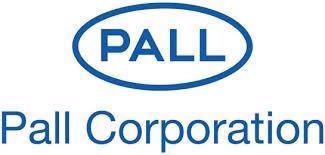Three key options are available for carrying out filter integrity testing and the chosen option is dependant on the filter membrane material. Test procedures for filters with hydrophilic membranes typically employ the bubble point test (BP) and the Forward Flow test (FF, also known as the diffusive flow test).

Image credit: Pall Corporation
The pressure hold test or pressure decay test can be employed in tests where the gas flow is calculated indirectly via analysis of pressure changes.
An essential requirement for these tests is the complete wetting of the filter membrane pores. This is carried out by utilizing a wetting fluid such as buffer, water, or a filtration product.
In instances where hydrophobic membranes will not wet with water, it is necessary to employ a low surface tension liquid, for example, a combination of alcohol and water. The water flow or Water Intrusion test (WIT) is another organic solvent free testing method for filters with hydrophobic membranes.
A bubble point test is frequently utilized to evaluate small filter assemblies where filters have been installed in a capsule, disc holder, or cartridge filter housing. The test involves the step-by-step application of nitrogen or air pressure to the wetted membrane.
The gas flow across the membrane is measured at each pressure stage and as the pressure rises, it will eventually reach a juncture at which it surpasses the capillary forces of the biggest pores in the filter membrane.
Automated test apparatus will gauge the rise in airflow as the wetting liquid is ejected and bulk gas flow follows. The resulting value is what is known as the bubble point, and this value will identify a pass or fail when evaluated against the literature values for the filter or membrane.
An advantage of the bubble point test is that it can identify pore size-related faults on membranes that have a small surface area.
Forward Flow tests measure diffusive gas flow across a wetted filter membrane where the nitrogen or air pressure is at a constant value or level. Diffusion caused by the difference in pressure across the membrane means that the gas flows across the wetted filter membrane.
Automated test equipment will determine whether the result is a pass or fail and defects will be established by a rise in flow values beyond a confirmed maximum level.
The Water Intrusion test is ideal for filters with hydrophobic membranes that cannot be wetted by water but are instead entirely covered with it. Using pressure created by air or nitrogen, the penetration and passage of water are deterred by the membrane.
A tiny amount of water will evaporate and then pass through the membrane in the form of water vapor.
This low flow is determined by utilizing automated test equipment. If results indicate that water flow has exceeded a predetermined ceiling, this can be understood as an indicator of a non-integral filter.
Each of these three straightforward, non-destructive tests can be successfully performed with the same automated test equipment.
This gives users the ability to establish filter integrity for a wide range of processes and manufacturing procedures, delivering benefits within the wider manufacturing facility.
When Does Filter Integrity Testing Become a Consideration?
It should be noted that the progression to commercialization means filter integrity testing needs to be carried out in accordance with good manufacturing practice.
Filter integrity testing lessens risk, reduces product loss and protects the financial investment that is essential when manufacturing high value biopharmaceuticals.
It is of utmost importance that post-use filter integrity testing verifies the performance of a sterile filter when it is employed in the production of a sterile final drug product. This is vital in ensuring patient safety.
Biological processes are responsible for a very high percentage of pharmaceutical products that are new to the market. While terminal heat sterilization of sterile drug products and injectables within their final container is the favored option, this may not always be possible due to the heat sensitivity of biological products.
Regulatory authorities tend to recognize cold sterilization as the process of choice for many biopharmaceutical products. Confirmation of a filter’s integrity is, therefore, a critical factor in batch release.
Testing the integrity of a sterilizing grade filter utilized within a biopharmaceutical process is a fundamental requirement in ensuring the filter can fulfill its task.
The known sensitivity limitations of compendial sterility tests mean that the integrity of the filter is a critical control point when it comes to confirming and releasing a drug product as sterile.
Thankfully, contemporary automated filter integrity testing is now fast, reproducible and accurate. It is also traceable and auditable – two essential considerations when seeking to meet stringent approval requirements.
Filter integrity testing is an important tool in the successful manufacture of biopharmaceutical drug substances.
Acknowledgments
Produced from materials originally authored by Joerg Schubert from Pall Biotech.

This information has been sourced, reviewed and adapted from materials provided by Pall Corporation.
For more information on this source, please visit Pall Corporation.